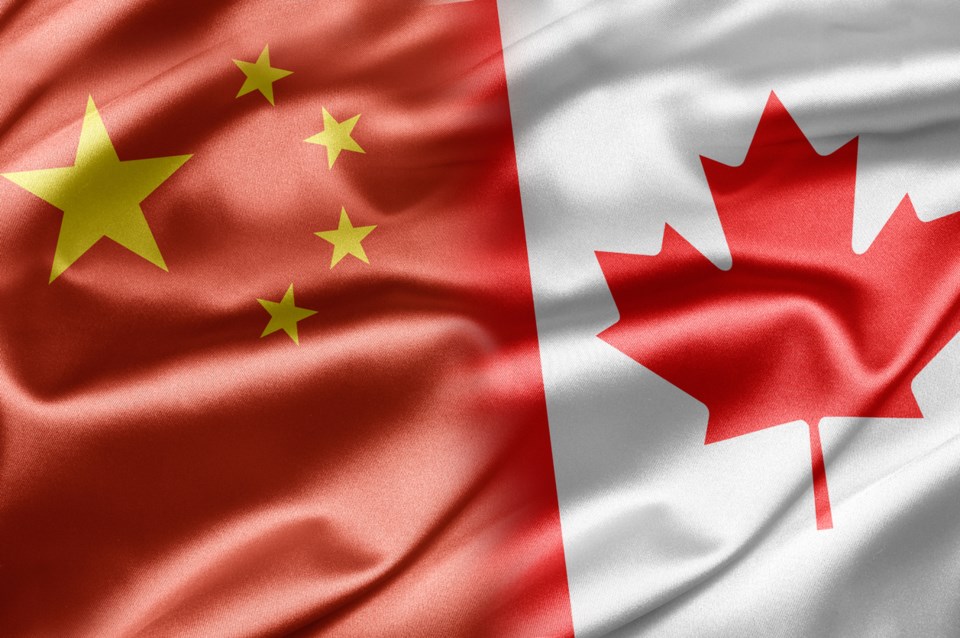If Canada wants to accuse China of espionage or using businesspeople or students to influence Canadian policy, it should produce evidence, China’s embassy in Ottawa said Friday.
The National Security and Intelligence Committee of Parliamentarians said in a report released Tuesday that the Asian tiger poses a significant national security cyber threat to Canada.
The report addresses concerns Canada’s intelligence community has about China under the heading “Espionage and Foreign Influence.”
The embassy says the issues are different concepts.
“If the report tries to accuse China of conducing espionage activities in Canada, it should produce tangible evidence, rather than making malicious attacks out of nothing,” the embassy said in a statement to Glacier Media.
The statement said China adheres to a principle of non-interference in the internal affairs of other countries.
“Some Western countries are keen to engage in espionage activities in other countries, carry out ‘color revolution’ and interfere in other countries’ internal affairs,” the statement said. “Such examples are too numerous to mention.”
That’s the opposite of what the Canadian parliamentarians said.
“China is known globally for its efforts to influence Chinese communities and the politics of other countries,” said the report to Parliament.
Relations between Ottawa and Beijing have been strained since the arrest of Shenzen-China-based telecommunications giant Huawei’s chief financial officer at Vancouver airport in December. Meng Wanzhou is the subject of a U.S. extradition request on fraud-related charges and remains on $10-million bail.
Ottawa has suggested the detention of two Canadians and the increasing of another’s jail sentence from 15 years to death as retaliation for Meng’s detention.
The report also said, “The Chinese government has a number of official organizations that try to influence Chinese communities and politicians to adopt pro-China positions, most prominently the United Front Work Department.”
The Chinese embassy takes issue with that assessment.
“Is there anything wrong with that the Chinese government is committed to making the outside world take a pro-China position?” the embassy asked. “Is the Canadian government willing to let the outside world take a counter-Canada position?”
The statement said the work of an agency such as the United Front Work Department demonstrates that it is “committed to establishing friendly relations between China and foreign countries with good will. “
Further, the report said, in 2016 the issue of wealthy Chinese businessmen with close connections to the Communist Party of China making political donations in Canada was raised, an issue also seen in other countries.
And, it said, media and academic reports point to Chinese attempts to influence government through significant political donations, influencing Chinese-language media and covertly supporting community groups and demonstrations.
“Chinese police and security officials have also been caught operating without permission in foreign states to persuade or coerce Chinese fugitives to return to China,” the report said.
That was apparently the case when Lai Changxing, dubbed China’s most wanted man, was fighting extradition from Canada in Vancouver, wanted in his homeland on corruption charges.
Hearings in downtown Vancouver heard of the presence of so-called ‘420 teams’ from China operating in Canada to try and influence Lai and those around him to return.
“There was a problem in the Lai case,” Lai’s lawyer David Matas said “The Chinese got visas for a trade delegation which in fact were part of the 420 team assigned to Lai. They got the visas and used them to try to pressure Lai to return to China.”
Matas said when Ottawa “found out about the abuse of their visa system, they sent a formal diplomatic protest to China.”
The student issue was highlighted this week in a Glacier Media report about Chinese government-sponsored student groups coming under the spotlight in Canada, including in B.C. where a university authorized a military-style Chinese flag raising ceremony.



